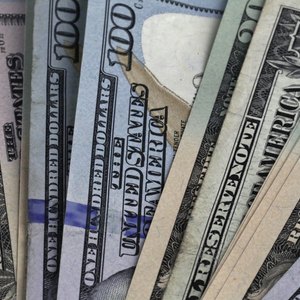
Some stocks pay dividends, which are cash payouts of profits. Typically, a company will pay out a dividend quarterly. You don't get a dividend if you buy a stock that the day the dividend is paid. Rather, you have to understand the difference between the ex-dividend date, the record date and the payment date. To ensure the receipt of a pending dividend from a stock you own, the ex-dividend date is the most important of the three to understand.
Tips
While you can sell on the ex-dividend date, you are essentially defeating the purpose of the dividend process.
Understanding the Record Date
To receive a dividend payment, an investor must own the shares on the declared record date. The record date "records" who the shareholders are as of that day. These shareholders are the ones entitled to the dividend. A company will include the record date with each dividend announcement, along with the amount of the dividend.
Exploring the Ex-Dividend Date
To officially own stock shares on a specific date, you must buy a stock at least two business days before the record date. Stock trades in the U.S. take two days to "settle," or become official. Due to the two-day settlement rule, a stock goes ex-dividend one business day before the record date.
Owning On Ex-Dividend Date
If the stock shares are purchased no later than the day before the ex-dividend date and held until trading starts on the ex-dividend date, the investor will receive the dividend payment. The stock can be sold any time after the market opens on the ex-dividend day and the dividend will still be deposited in the investor's account on the dividend payment date.
Evaluating the Ex-Dividend Effect
On the ex-dividend date, the share price of the stock will start trading at the previous day closing price minus the amount of the dividend. For example, a stock closes at $50 per share two days before the record date of a $1.00 dividend payment. At the open on the ex-dividend day, the shares will start trading at $49. This price change prevents a trader from profitably buying shares just before a stock goes ex-dividend and then selling on the ex-dividend date with a plan to profit from the dividend received.
Other Selling Considerations
Selling shares on the ex-dividend date defeats the purpose of earning the dividend. The value of the stock drops on the ex-dividend date by the same amount as will be earned when the dividend is paid. To collect a dividend from a short-term stock investment, the shares must be held until the share price recovers to at least the value on the day before the ex-dividend date.
References
Writer Bio
Tim Plaehn has been writing financial, investment and trading articles and blogs since 2007. His work has appeared online at Seeking Alpha, Marketwatch.com and various other websites. Plaehn has a bachelor's degree in mathematics from the U.S. Air Force Academy.

